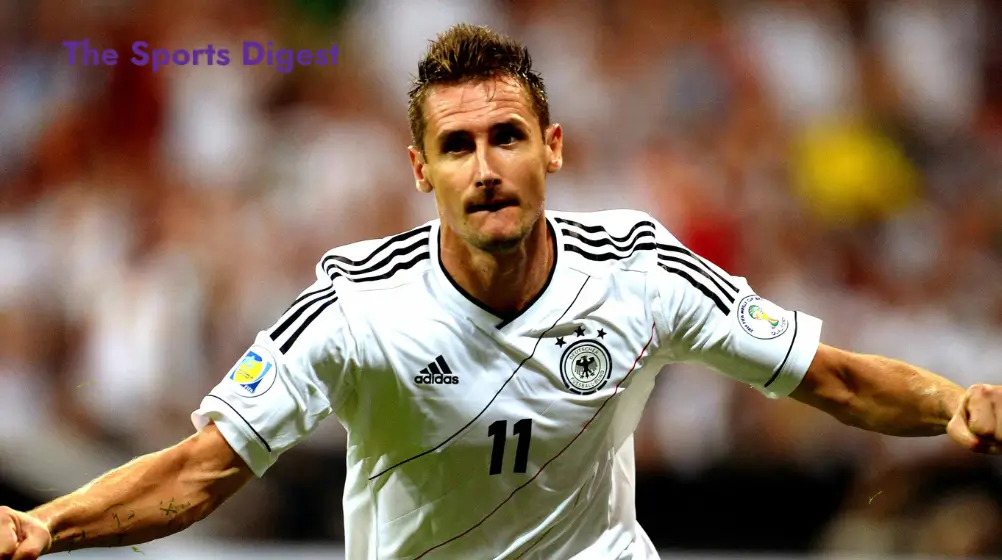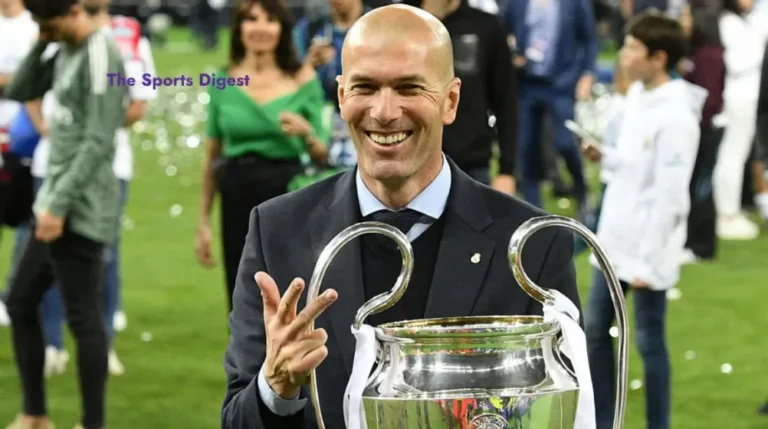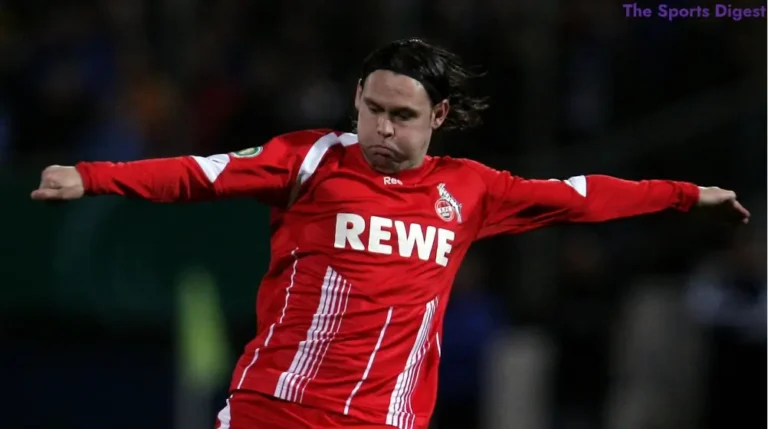Miroslav Klose: Germany’s World Cup Legend
Miroslav Klose, born on June 9, 1978, in the German city of Diessburg, is one of the greatest footballers of his generation. Known for his exceptional goal-scoring ability, especially with his head, Miroslav Klose became a legend for both the German national team and the clubs he played for. He holds the record for the most goals scored in World Cup history and is regarded as one of the top strikers to ever play the game. In this article, we will explore his football career, achievements, records, and key moments throughout his remarkable journey.
Table of Contents
Starting in Germany: From Homburg to Kaiserslautern
Miroslav Klose began his football journey at a young age, playing for small clubs before making a name for himself in Germany’s football scene. His professional breakthrough came when he joined 1. FC Kaiserslautern in 1999. Initially playing as an amateur, he quickly gained attention due to his goal-scoring prowess and physical attributes.
After just one season at Kaiserslautern, Klose was called up to the German national team, marking the start of his international career. He scored 25 goals in 62 matches for Kaiserslautern, catching the eye of both domestic and international football fans.
Rise to Prominence with the German National Team
- International Debut: 2002 World Cup
Miroslav Klose’s first major international tournament came in the 2002 FIFA World Cup held in South Korea and Japan. Despite Germany reaching the final, Klose emerged as one of the top performers of the tournament. He scored five goals, placing second in the tournament’s top scorer rankings, just behind Brazil’s Ronaldo, who scored eight goals.
Klose’s performance in the 2002 World Cup confirmed his reputation as a reliable and talented goal scorer, showcasing his ability to perform on the biggest stage.
- 2006 World Cup Achievements
Klose continued to impress on the world stage during the 2006 FIFA World Cup, which was hosted by Germany. In the opening match against Costa Rica, Klose scored two goals, setting the tone for a brilliant tournament. He would go on to score a total of five goals, winning the Golden Boot as the tournament’s top scorer. His ability to deliver under pressure and score in crucial moments made him one of the standout players of the competition.
Klose finished as the tournament’s top scorer with five goals, narrowing the gap to Brazilian legend Ronaldo, who had scored 15 goals in World Cup history at the time.
Club Career in Europe
- Transfer to Werder Bremen
In 2004, Klose moved to Werder Bremen in a transfer worth around five million euros. At Bremen, Klose continued to solidify his status as one of the Bundesliga’s premier strikers. In the 2005-06 season, he finished as the Bundesliga’s top scorer with 25 goals, further cementing his place as one of the best in the league.
- Joining Bayern Munich
Klose made a significant move in 2007 when he transferred to Bayern Munich, one of the biggest and most successful clubs in Germany and Europe. Despite being part of a team full of stars, Klose continued to shine. He helped Bayern win multiple titles, including the Bundesliga in 2007-08 and 2009-10, and the DFB-Pokal in 2007-08 and 2009-10.
His aerial ability was a key factor in his success, as Klose scored numerous goals with his head, becoming one of the most effective headers of the ball in world football during his time at Bayern.
- Move to Lazio
In 2011, Klose made the move to Serie A, joining Lazio. There, he continued to impress and contributed to the team’s success, winning the Coppa Italia in the 2012-13 season. After spending five years in Italy, Klose announced his retirement from football in 2016.
Playing Style and Strengths
- Aerial Dominance
Miroslav Klose was widely regarded as one of the best players in the world when it came to scoring with his head. Around 90% of his goals came through headers, thanks to his towering height, powerful jumping ability, and excellent timing. Klose’s aerial ability made him a constant threat in the box, and he was known for his ability to out-jump defenders to score crucial goals.
- Clinical Finisher
In addition to his aerial prowess, Klose had a remarkable ability to finish chances with precision. Whether it was a tap-in, a header, or a well-placed shot, Klose was never wasteful in front of goal. He had an excellent sense of positioning and knew how to find space in the box to score goals at the most important moments.
Miroslav Klose’s Achievements
- Club Titles Klose won several major domestic titles during his career, particularly with Werder Bremen, Bayern Munich, and Lazio. With Bremen, he won the DFB-Liga Cup in 2006. At Bayern Munich, he helped the team claim the Bundesliga title twice (2007-08, 2009-10), the DFB-Pokal twice (2007-08, 2009-10), and the DFL-Supercup in 2010. With Lazio, Klose won the Coppa Italia in the 2012-13 season.
- National Team Success Klose’s crowning achievement with the German national team came in 2014, when he helped lead Germany to victory in the FIFA World Cup in Brazil. The team’s 1-0 win over Argentina in the final secured Germany’s fourth World Cup title. Klose also achieved second place in the 2002 World Cup when Germany lost to Brazil in the final.
- Individual Awards Klose received numerous individual accolades throughout his career, including the Silver Boot at the 2002 World Cup and the Golden Boot at the 2006 World Cup. He was also named the German Footballer of the Year in 2006 and finished as the Bundesliga’s top scorer in 2005-06 with 25 goals.
Miroslav Klose’s Records
- All-Time World Cup Top Scorer Miroslav Klose holds the record for the most goals scored in FIFA World Cup history, with 16 goals. He broke the previous record of 15 goals held by Brazilian striker Ronaldo. This record is one of the most significant achievements in World Cup history, solidifying Klose’s legacy as one of the game’s greats.
Conclusion
Miroslav Klose is undeniably one of the greatest goal scorers in football history. With a career that spanned over 15 years, Klose earned recognition for his consistency, clinical finishing, and aerial dominance. His remarkable ability to score in critical moments made him a key player for both his club teams and the German national team. Although Klose retired in 2016, his legacy as the top scorer in World Cup history and one of the most prolific forwards of his generation will never be forgotten.
Have you ever read an article like this?
There are no reviews yet. Be the first one to write one.






